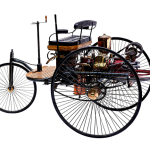Section 1: The Importance of Research
When it comes to car shopping, the key to unlocking the best deals is research. Many car buyers make the mistake of walking into a dealership without doing their homework, only to end up paying more than they should. In order to get the best bang for your buck, it is crucial to do your due diligence and research before making a purchase. This not only includes researching the type of car you want, but also understanding the current market trends and the different financing options available.
One of the first things you should research is the type of car that best suits your needs. Are you looking for a fuel-efficient sedan or a spacious SUV? Do you need a vehicle with advanced safety features or one with a powerful engine? Knowing what you want in a car will help narrow down your options and prevent you from getting swayed by a salesperson’s pitch. Additionally, researching the reliability and maintenance costs of different car brands can also save you from future headaches and expenses.
Another important aspect of research is understanding the current market trends. This includes knowing the average price of the car you want, as well as any discounts or promotions that may be available. Keep an eye out for end-of-year sales or new model releases, as dealerships often offer discounts to make room for new inventory. You can also use online tools to compare prices from different dealerships and negotiate for a better deal.
Lastly, researching financing options is crucial in order to get the best deal. It is important to understand the difference between buying and leasing a car, as well as the pros and cons of each. Additionally, having a good credit score can help you secure a lower interest rate and save you thousands of dollars in the long run. Don’t be afraid to shop around for financing options and negotiate for a better rate.
Section 2: Timing is Everything
Timing is crucial when it comes to getting the best car deals. As mentioned earlier, keeping an eye on market trends can help you determine the best time to buy a car. However, there are also other factors that can affect the timing of your purchase.
For example, the end of the month or the end of the year are often the best times to buy a car. This is because dealerships have monthly and yearly sales goals to meet, and they may be more willing to negotiate in order to make a sale. Additionally, buying a car during the off-season, such as in the winter for convertible cars, can also result in better deals.
Another important factor to consider is the time of day you visit a dealership. It is best to avoid peak hours, such as weekends or evenings, as the dealership may be more crowded and the salesperson may be more focused on making quick sales rather than negotiating a good deal. Instead, try to visit during weekdays and during the day when the dealership is less busy and the salesperson has more time to work with you.
Section 3: Negotiation Tips and Tricks
Negotiating is an art, and when it comes to buying a car, it can save you thousands of dollars. However, many people are intimidated by the negotiation process and end up paying more than they should. Here are some tips and tricks to help you negotiate like a pro and get the best deal on your car.
First and foremost, be confident and don’t be afraid to walk away if you are not getting the deal you want. Remember, you are the customer and you have the power to choose where you want to spend your money. This mindset can give you the upper hand in negotiations.
Next, do your research and come prepared with information and numbers to back up your offer. This shows the salesperson that you are serious and have done your homework. Additionally, don’t be afraid to negotiate on the price of the car, as well as any additional fees such as documentation or dealer fees.
Another helpful tip is to negotiate for the total cost of the car, rather than just the monthly payment. Sometimes, a lower monthly payment may seem like a good deal, but it can actually end up costing you more in the long run due to a longer loan term or higher interest rate. Negotiating for the total cost can help you get a better picture of the actual price you will be paying for the car.
Lastly, don’t forget to negotiate for extras such as free maintenance or extended warranties. These can add value to your purchase and save you money in the long run. Don’t be afraid to ask for these extras, as the dealership may be willing to throw them in to close the deal.
Conclusion:
In conclusion, unlocking the best car deals requires research, timing, and negotiation skills. By doing your homework, understanding market trends, and being confident in your negotiations, you can save thousands of dollars on your car purchase. Remember to be patient and don’t rush into a decision, as the right timing and negotiation can result in a budget-friendly and satisfying car shopping experience. Happy car hunting!











